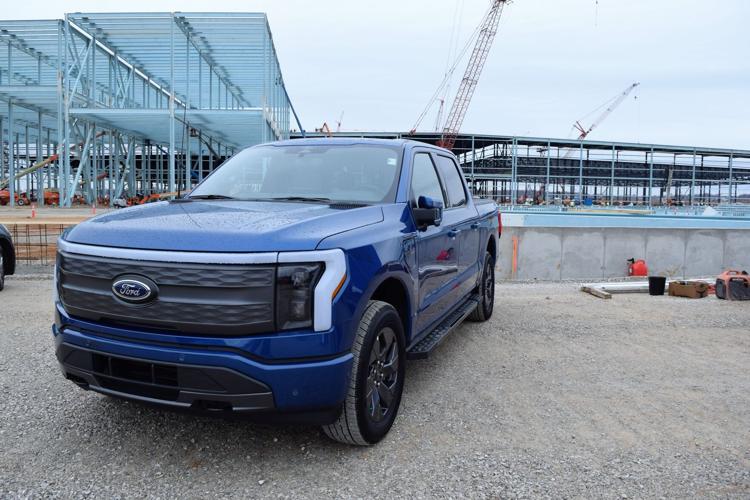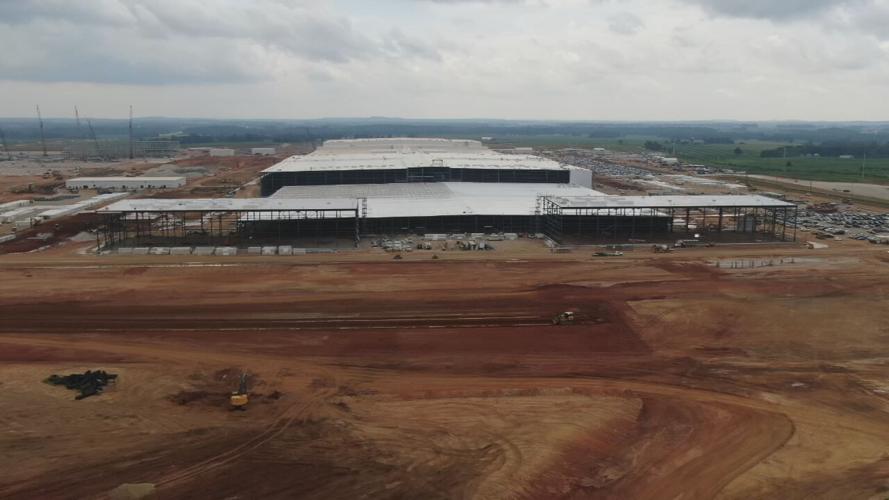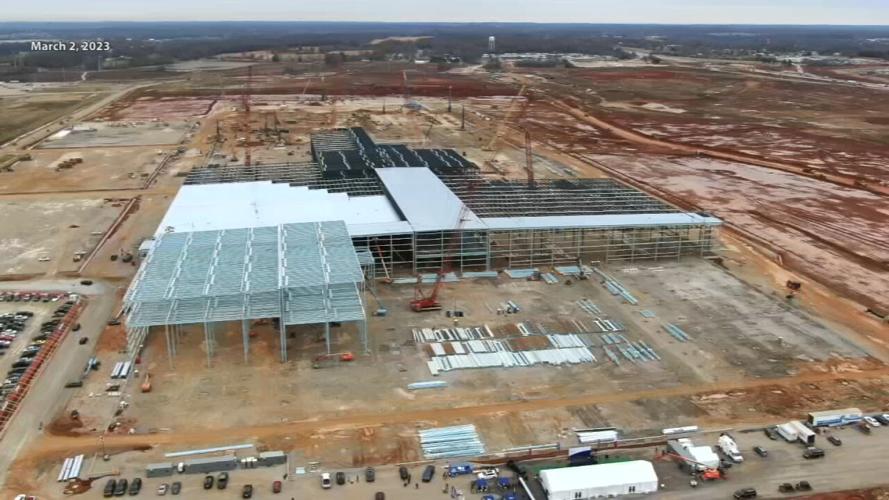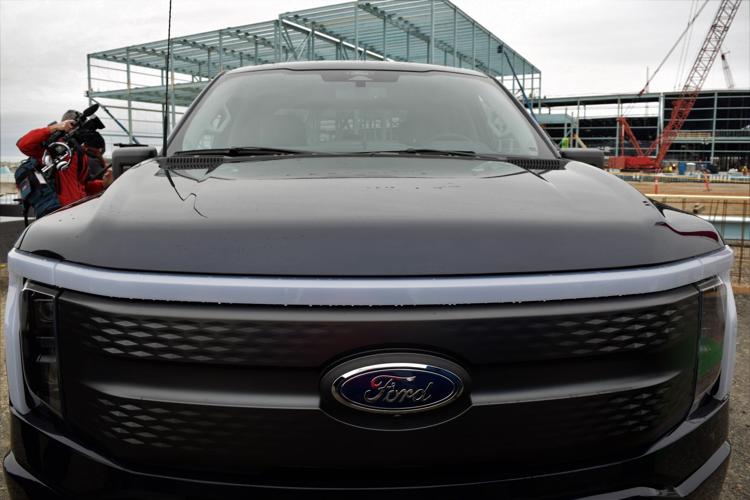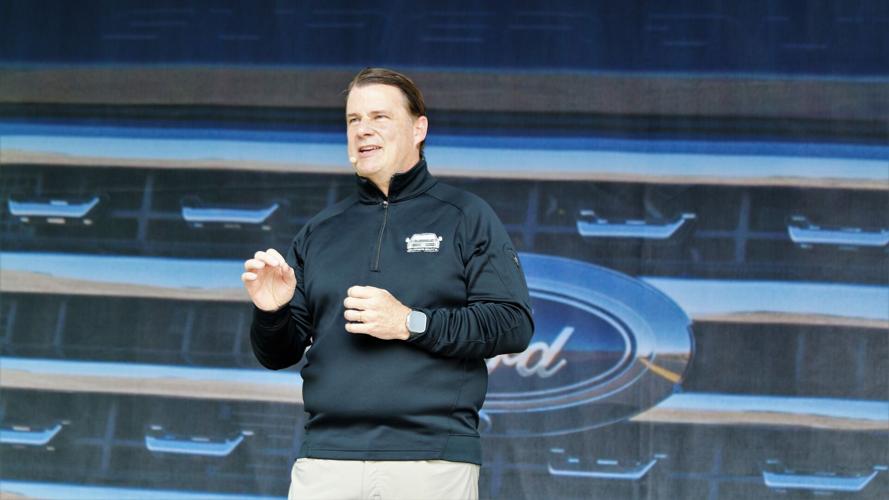LOUISVILLE, Ky. (WDRB) — Ford Motor Co. CEO Jim Farley said Friday that electric vehicle battery plants the company is partnering to build — including the two under construction in Hardin County, Ky. — are the main stumbling block in reaching a labor contract with the United Autoworkers union.

Ford Motor Co. CEO Jim Farley speaks at an event at Kentucky Truck Plant in Louisville, May 24, 2023.
“What’s really frustrating is that I believe we could have reached a compromise on pay and benefits, but so far, the UAW is holding the deal hostage over battery plants,” Farley told reporters in a news conference hours after the UAW announced an expanded strike on Friday.
“Keep in mind, these battery plants don’t exist yet … They have not been organized by the UAW yet because the workers haven’t been hired and won’t be for many years to come.”
UAW President Shawn Fain quickly shot back, saying Farley is “lying” about the status of talks between the union and the company. While the union is concerned about the industry transition to electric vehicles, Fain said it’s also at odds with Ford on more fundamental contract items.
“(W)e are far apart on core economic proposals like retirement security and post-retirement healthcare, as well as job security in this EV transition, which Farley himself says is going to cut 40% of our members’ jobs,” Fain said in a statement, referencing a comment Farley made in November about EVs requiring fewer workers to make.
Ford and its Korean partner SK On are building three EV battery plants — two side-by-side plants in Glendale, Ky. and one in Stanton, Tenn. — that are expected to begin churning out battery packs for Ford EVs in 2025.
Ford has said it wants to produce about 2 million EVs a year by 2026, though it has backed off that timeline amid uncertainty of consumer demand for battery-powered cars.
Anything approaching that target would be a rapid increase: During the first eight months of 2023, Ford sold only 38,929 EVs, according to company figures.
While the battery plants under construction in Kentucky and Tennessee will be integral to Ford’s EV production, the plants are owned by BlueOval SK, a separate company formed by Ford and SK On.
The UAW would like to represent BlueOval SK’s future workers, but the plants are not formally part of the contract talks between Ford and the union.
The battery plants are expected to employ about 2,500 apiece, meaning the Kentucky site will be home to about 5,000 workers.
Ford is also building a battery plant in Michigan that it will own and operate using battery technology licensed from Chinese battery maker Contemporary Amperex Technology Co., Limited, or CATL. But the company announced earlier this week it was pausing construction of that plant and reevaluating its scope.
Ford sources have maintained that the battery plants have no formal connection to UAW contract negotiations, while the UAW has said it wants to secure job security for its members in the electric vehicle transition.
The union has called the “joint venture” ownership structure of the plants a “legal fiction” designed to keep the union out of the new facilities.
On Friday, Farley seemed to allow that the battery plants are on the table in the negotiations, though he did not specify how.
“We are open to work with the union on a fair deal for battery plants,” Farley said. “But these are multibillion dollar investments, and the future of our industry is in the balance, and they have to make good business sense.”
During Friday’s news conference, Ford officials repeatedly declined to say what exactly the union is demanding in relation to the battery plants.
A UAW source said the union is focused on maintaining its members’ jobs even if the industry meets ambitious targets for transitioning to EVs, but declined to elaborate on the union’s specific demands.
